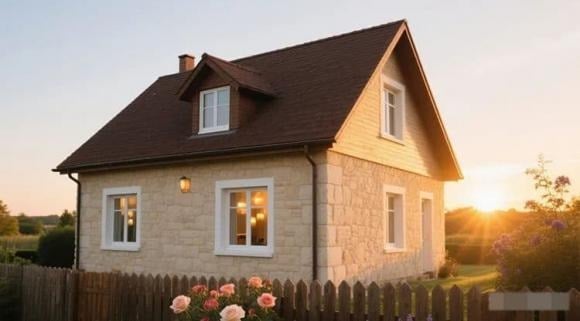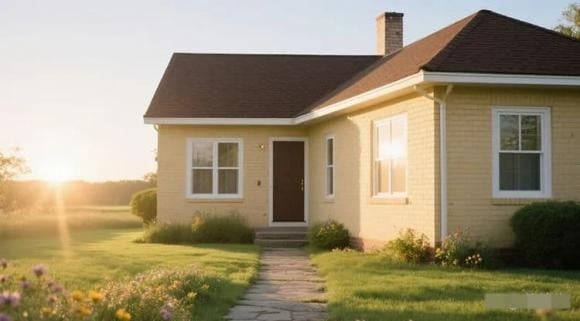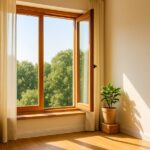The differences between east-facing and west-facing homes go beyond mere geography; they are intertwined with lifestyle habits, climate, and even feng shui considerations.
East-facing homes greet the morning sun, infusing the space with a sense of alertness and positive energy to kickstart the day. However, during rainy seasons or in areas with high humidity, these homes can become damp, impacting not only the longevity of the interiors but also posing potential health risks if not properly addressed.
West-facing homes, on the other hand, bear the brunt of the scorching afternoon sun, especially during the sweltering summer months. This results in higher indoor temperatures, creating a stuffy and uncomfortable environment. To mitigate this, homeowners often need to invest in cooling solutions such as air conditioning, fans, and sun-blocking curtains, which subsequently increase living expenses.
Why do folk sayings advise: “The rich don’t buy east-facing homes, and the poor avoid west-facing ones”?
This wisdom stems from financial capabilities and lifestyle priorities. The affluent can afford to renovate and upgrade their living spaces to suit their needs. However, they often steer clear of east-facing homes to prevent dealing with dampness, which can be a nuisance and detract from the luxurious and pristine ambiance they seek.
Conversely, those with limited means prioritize frugality. West-facing homes can lead to soaring electricity bills due to the increased need for cooling, an expense they’d rather avoid to maintain financial stability.

Additional factors to contemplate:
Aside from economic disparities, the choice between east and west-facing homes hinges on lifestyle habits, personal routines, and family goals. When contemplating which direction to choose, carefully consider your family’s dynamics and unique circumstances.
Family composition: If you have young children, the morning sun in east-facing homes is believed to stimulate their physical development and bolster their immune systems. On the other hand, retired individuals might prefer the gentler evening sunlight of west-facing homes, bypassing the chilly morning atmosphere.

Career paths: Creative professionals often gravitate towards the inspiring morning light of east-facing homes, while those in finance or business may favor west-facing abodes, symbolizing wealth accumulation and stability.
Health considerations: Individuals prone to feeling cold might opt for west-facing rooms to harness the afternoon sun’s warmth. Conversely, those sensitive to high temperatures should avoid west-facing homes to mitigate summer heat and safeguard their sleep and overall well-being.
The Ancient’s Warning: Homes with This One Feature Struggle to Prosper, and Family Harmony is at Risk.
The ancient art of Feng Shui is a practice that many believe holds great importance in creating a harmonious living space. It is thought that certain features of a home can greatly impact the energy flow and overall vibe of a place, and if these features are not addressed, they could potentially bring about negative consequences. So, if you find yourself with any of these tell-tale signs, it’s time to take action and find a way to remedy the situation.





































